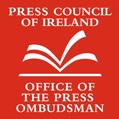 I concluded yesterday’s post by wondering what the impact of the Defamation Bill, 2006 might be upon the decision of Charlton J in Leech v Independent Newspapers (High Court, unreported, 28 June 2007). After that decision was handed down, the Department of Justice confirmed that the Bill, which failed to complete its passage through the Oireachtas during the lifetime of the last government, is to be re-entered on the order paper of the new Seanad in the Autumn (see Irish Times (sub req’d)). Though it is a flawed Bill, it is much better than the existing position; so this would be good news, were it not for the fact that the Irish Times predicts the Bill will be altered to reflect a more minimalist approach to libel reform.
I concluded yesterday’s post by wondering what the impact of the Defamation Bill, 2006 might be upon the decision of Charlton J in Leech v Independent Newspapers (High Court, unreported, 28 June 2007). After that decision was handed down, the Department of Justice confirmed that the Bill, which failed to complete its passage through the Oireachtas during the lifetime of the last government, is to be re-entered on the order paper of the new Seanad in the Autumn (see Irish Times (sub req’d)). Though it is a flawed Bill, it is much better than the existing position; so this would be good news, were it not for the fact that the Irish Times predicts the Bill will be altered to reflect a more minimalist approach to libel reform.
Whatever else is excised, it is certain that the provisions relating to the Press Council and Press Ombudsman will be retained, not least because the membership of the Council was announced early in the Summer, and the Ombudsman has recently been appointed (see press release (pdf) | Irish Times (sub req’d) | Irish Independent breaking news | Irish Independent report | Irish Examiner | RTE | Belfast Telegraph | Breakingnews.ie | NUJ | DCU | Blurred Keys | Media Forum | Soapbox Ireland | Sinn Féin | Liberal Republican | Greenslade).
Prof John Horgan, a fellow Kerryman in exile in Dublin, and recently retired as Professor of Journalism in DCU (see also here) after a varied career as politician (Senator, TD and MEP for the Labour Party), journalist (in many newspapers), author (of several books), academic and member of several previous commissions and fora, has been appointed to the post of Press Ombudsman. The Chairman of the Press Council, Professor Thomas Mitchell, said:
Professor Horgan’s appointment marked the beginning of a new era for Irish media and hopefully a very positive new relationship between the press and the public. The appointment of a Press Ombudsman means that Ireland finally has a complaints mechanism that is free, easy to use, totally independent and available to every citizen. Anyone who feels aggrieved by a newspaper article or photograph can avail of this mechanism without having to risk spending a fortune by going to court. This is an essential service in any democratic society.
Prof Horgan’s appointment came at the end of a comprehensive appointment process. It is the last piece of the jigsaw to be put into place by the Press Industry for the self-regulation of the print media. It has done this in anticipation of the Defamation Bill becoming law, since the Bill provides for the recognition of such a Council and Ombudsman system. It seems that it is hoped that the Office of Press Ombudsman will be fully operational by November, providing a first point of contact for members of the public who wish to make a complaint against a newspaper or magazine. The Press Ombudsman will deal with the majority of complaints, though he can refer difficult cases or complaints that have not been satisfactorily resolved to the Press Council.
To a very great extent, whether the Ombudsman and Council are to possess and exercise the moral authority necessary to make the grand experiment work will depend as much on the personalities of these recent appointment as on anything inherent in the nature of the offices. It is a difficult and delicate, even daunting, task; and if John Horgan can’t make this work to the benefit of the public at large as well as of the journalistic profession, then no-one can. I’m glad he applied; I’m delighted he was appointed; and I’m convinced that his credibility and stature, and that of the Office of the Press Ombudsman, can only grow as a consequence.
Welcome back to the blawg Eoin. You’ve been missed. This post is highly concidental. I too agree with your sentiment in respect of the Defamation Bill. Question: Is the polictical will there to bring the bill forward, or have the lobby’s once again prevailed?
Ronan
Good question, Ronan, and I’m afraid that as yet I don’t know the answer. We shall just have to wait and see what comes before the Seanad in due course.